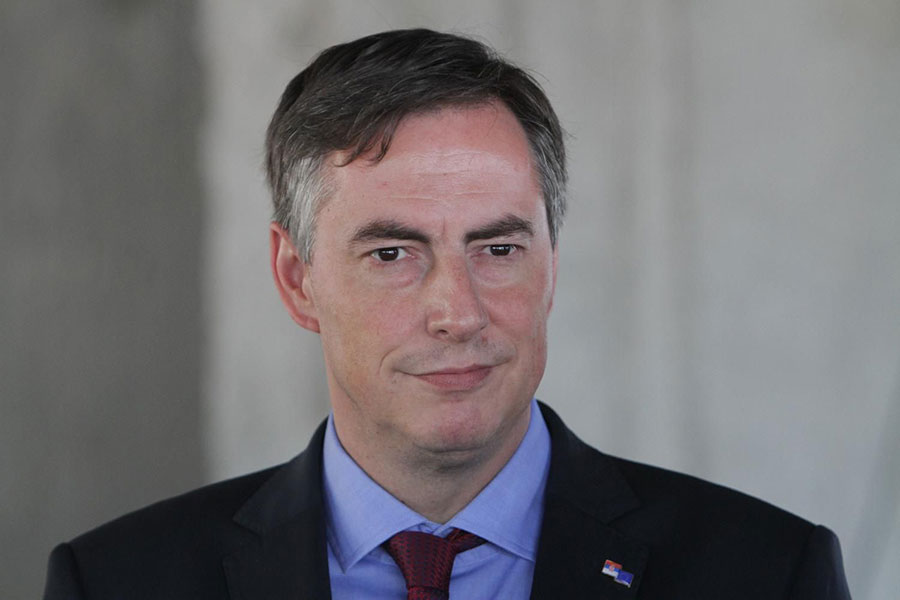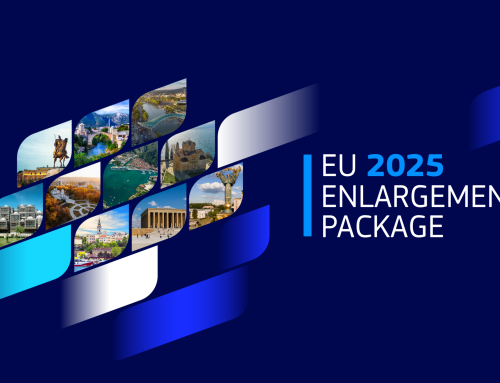David McAlister’s interview for Radio Free Europe
Straining of relations between Macedonia and Serbia has caught us by surprise, but I am happy to know that the two countries have found a diplomatic solution, said in an interview with Radio Free Europe David McAllister EP Foreign Committee President and EP Rapporteur for Serbia.
“We discussed the issue of the recent controversies between Serbia and Macedonia, for instance with Minister Dacic yesterday and I was told about the conflict, if you want to call it that way. There was a call from all European Union institutions and we asked both sides to remain as calm as possible“, McAllister told us during the second day of visit to Belgrade.
Also, we spoke about the decision made by certain opposition leaders in Serbia not to meet him, media freedom in Serbia, the Savamala issue and Serbia blocking the admission of Kosovo into UNESCO and Interpol. But first of all, about the view of certain Serbian officials regarding the Serbia-Macedonia dispute.
RSE: What was the explanation of Mr. Dacic for example? As you know he had said, I am trying to quote, that Macedonia has done “intensified intelligence offensive action towards Serbia“ and added “with support of the foreign factors“. How do you understand these words?
McAllister: Well I can’t explain to you in detail what he told me because we had a confidential conversation yesterday. But it was along this line: obviously, Serbia was disappointed with certain action Macedonia had taken against Serbian diplomats. I think they have now clarified the situation, both sides exchanged views on this issue and hopefully we won’t see another step like this, another development like this happening again“.
RSE: Isn’t this issue interesting for you, since you know what role intelligence, especially from Serbia, had in one terrible time during the 90’s. Is this a good reason to be concerned?
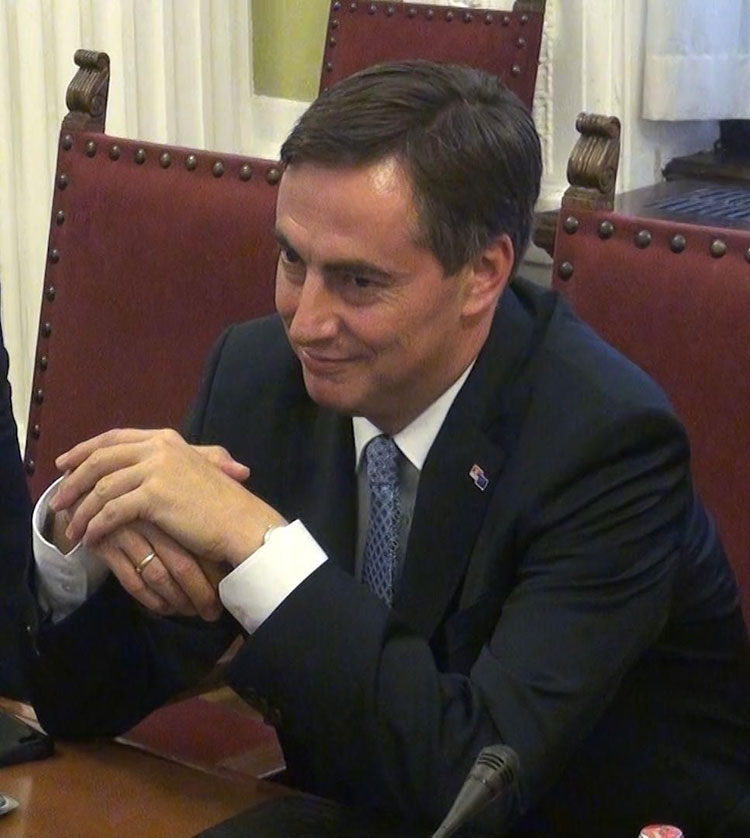
FoNet
McAllister: If we look at the recent developments between Belgrade and Skopje, what is of particular interest for us in the European Union is that we want good neighbourly relations between the countries here in this part of Europe. That’s why we are very engaged in supporting the policy of good neighbourly relations, regional cooperation and reconciliation. That is why the countries like Germany, France, Italy and UK started the so-called Berlin Process to bring these countries that are not yet members of the European Union closer together by connecting them through youth exchange, infrastructure and energy projects. And I think most important thing is that we have a process of permanent dialogue between the capitals of these countries. So for us perhaps surprising was that Serbia and Macedonia which until now didn’t really have many conflicts at all, all of a sudden this popped up. But I am very happy that there have now been talks between Presidents Vucic and Zaev, between Prime Minister Brnabic and Zaev, between foreign ministers. Hopefully conflicts like this can now be solved on a diplomatic level without this escalation.
RSE: Where is the interest of Serbia to be involved in Macedonian political situation and opposite?
McAllister: I can’t tell you what the reasons were for these Macedonian actions, given that they took place, which I can’t judge because I don’t have any intelligence. I think all Western Balkans countries should look forward and all of them should be interested in not blocking each other on their paths towards the EU. Serbia and Montenegro are the frontrunners when it comes to EU integration process, but all six countries have clear European perspective and Macedonia is a country that has been blocked for years, thanks to the name issue between the FYROM and Greece, and I hope that this conflict could finally be solved, so that we give this country also a perspective for EU integration and actually start going a few concrete steps.
RSE: It is impossible to talk about regional cooperation and stability without the issue of Kosovo and Serbia. Is it possible to be cooperative if Serbia at the same time blocked Kosovo admission in the UNESCO and, what is even more risky, in Interpol?
McAllister: I have been dealing with Serbia for three years as Rapporteur and if there’s one thing I learned is the fact that relations between Serbia and Kosovo are very complex and that the dialogue is absolutely key. The European Union facilitates the dialogue because we would like to support the development which would allow the relations between the two sides to gradually normalise. The important is that waht has been agreed in the dialogue is implemented on the one hand, and on the other that we should take furhter steps in the dialogue so new project can be identified, and then implemented as well. At the moment the dialogue isn’t taking place due to the fact that obviously it’s difficult to form a Government in Pristina. I do hope that Kosovo would soon have a stable and active government so that we can continue the dialogue between the two presidents and prime ministers. In the end, the idea of the dialogue is that relation between the sides further normalises and that in the end both sides don’t block each other on the path of EU membership. We are committed to European perspective of all countries. It’s a long way to go and I know how delicate this issue in Belgrade and Serbia is.
RSE: Butt I must ask you, what is your attitude towards the issue of Serbia blocking the admission of Kosovo in UNESCO and Interpol?
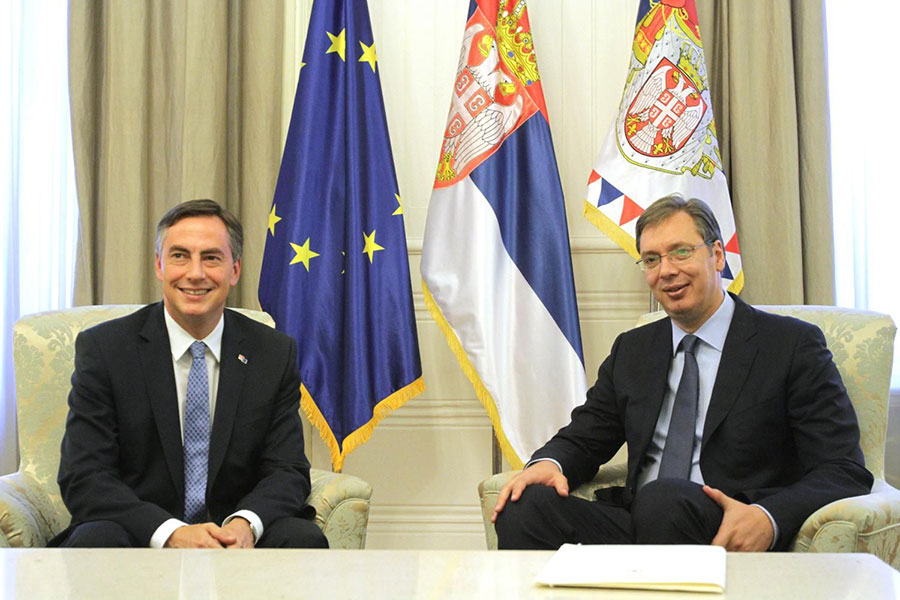
FoNet
McAllister: I come from a country which has recognised Kosovo. But as a representative of the European Union I am fully aware that we have five countries in the EU which haven’t. My argument is that in the end we need a legally binding agreement between both sides so they can exercise all their rights and duties. Of course, I understand Kosovo’s wish to join international organisations. On the other hand, I have often spoken to Serbian politicians and they tell me why they are sceptical or against this move. This is a conflict between Kosovo and Serbia which can in my view only be resolved through permanent dialogue. That is why I very much welcome that President Vucic has now announce his new initiative to start a debate in this country how future relationship between Serbia and Kosovo could be defined.
RSE: A lot of experts believe that such a dialogue is delayed for 27 years or more.
McAllister: That isn’t the timeframe I’ve heard of. But of course this dialogue needs time and debate needs time and it should be a very thorough debate because in the end the result should be how Serbia positions itself politically in this very complicated question. So the dialogue should take as much time as necessary. But I can’t tell you about the timeframe. I just know from so many conversations not only with politicians in Serbia but also you know very ordinary people, I try to talk as much as possible with Serbian people when I come here. I know that there are many different views on this topic, but it is one of the key issues in the political debate in this country.
RSE: You know, there are many politicians, experts, observers, who believe that Serbian President Aleksandar Vucic has prepared some final solution and is planning to declare it in autumn. Did he tell you something about that, may I ask you?
McAllister: Oh we had a private conversation yesterday, but I asked the President how the dialogue should be structured and he told me that his vision is that a political debate about this question should engage the political spectrum, the civil society or the churches. But he wants to start a wide debate about where Serbia is going in this question.
RSE: I am sorry I must interrupt you, I am sorry if I am using too strong words, but it sounds like hypocrisy if we know what kind of attitude Serbian President has towards Serbian opposition and at the same time he invites them to a dialogue.
McAllister: If you look at Serbian politics, from a European point of view, it’s rather confrontational political debate, but I think all sides are very active in uttering their political views. I think the important thing is that at the end of the political debate there is also a result. That’s what democracy is about. I don’t know, you don’t know, nobody knows where this dialogue would actually go or whether it would be a success or not. But I do think that the step to initiate the dialogue has been encouraged by the international community.
RSE: What would you advise the opposition leaders whom you met in Belgrade, to take part in this dialogue or not.
McAllister: As a Rapporteur for Serbia, when I come to Belgrade I always try to meet not only with Government representatives but also representatives from the Parliament, from the majority and minority, and of course the representatives of the opposition. I did this in 2014, 2015 and 2016 and yesterday my conversation with the opposition was to listen. Look, I am trying to present a report on Serbia once a year and I try to keep it as balanced as possible. And of course, I’m also interested in what the opposition has to say about the situation of the democracy in this country, how the reforms are being implement, what is the situation of media freedom. So I carefully listened, I also heard some critical views, also regarding the initiated dialogue, but on the other hand regarding the initiated dialogue. And regardless of their participation, Kosovo remains one of the key issues in Serbia. Let me also add that Kosovo is an important question, but is not the only question of Serbian politics.
RSE: Do you understand the reasons why certain opposition leaders, including Sasa Jankovic who won 16% in presidential elections in May, refused to meet with you?
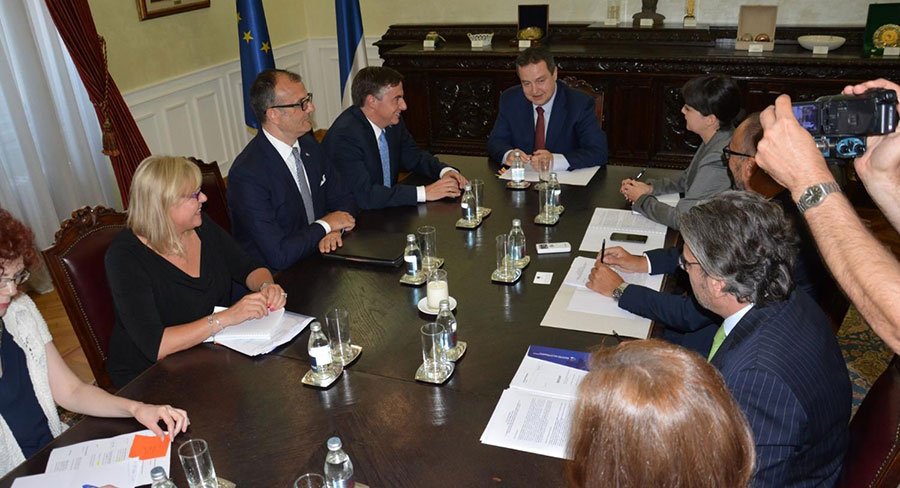
FoNet
McAllister: I think its holiday time in Serbia. Look, I was happy to meet four leading opposition figures and from my point of view it was a very helpful and interesting debate. Mr. Jankovic and Mr. Jeremic did not have time; I think they might not even be in town. Look, this happens. I come to Belgrade for a day, or two. I know what it’s like. I often get invited to speak to people in Brussels and I’m not in town and can’t come. I met with Mr. Jankovic a few times when he was still an Ombudsman, I also met Vuk Jeremic, I even once sat next to him on a plane, by chance, flying from Belgrade to Frankfurt. No problem for me.
RSE: But holiday definitely is not the reason.
McAllister: But I have to respect that there might be some time restraints.
RSE: Let me try to be precise, maybe this is not the most important, but Vladimir Todoric, one of the leaders of the Democratic Party, Tweeted that he spent four meetings with you in an attempt to assure you that there is censorship in Serbian media. Do you believe that there is strong pressure on Serbian media by the Government?
McAllister: You can read in my report on nine pages, adopted by the European Parliament with a huge majority and with very few amendments which I didn’t support. It’s 99 per cent my position on the situation in Serbia. You can read in detail what my position is. And in the report of the European Parliament on Serbia we have also been very clear on the situation of media in the country.
My report was adopted in June 2017. It was debated in January but then we postponed the vote because of the parliamentary elections and then presidential elections because we have a policy of not interfering in domestic politics in the European Parliament. In my report I am very clear that free media is a constitutive for the functioning of democracy and we, as the European Parliament, share the view of the European Commission that Serbia has made a lot of progress in many fields, but in the last year no progress was to be seen with regard to media freedom. I think every European representative who comes to Belgrade is very clear on this and I think the Government and Parliament will know what to do. But it’s not only about adopting laws; I think in general it’s important that you have an atmosphere of free and independent media which is absolutely vital for the functioning of democracy. In Germany, for instance, we call the media the fourth power, making clear that apart from the executive branch and independent judiciary and parliament, you need independent media to control those who are in power. So, there is room for improvement and it was one of the topics I discussed yesterday with opposition leaders.
RSE: Do you think that your interlocutors from the Government in Serbia understand that?
McAllister: Well you get different views. I address these issues very often when I talk to Government representatives. There’s a saying in Germany: is a glass half full or half empty. And often, one side will say it’s more positive and the other will say it’s more negative. I think you have a wide range of written media, with very different quality and attitudes but the main criticism of the opposition is that access to TV air time is unfair. I think it is up to the Commission which presents a very broad report on Serbia, broader in detail than I could ever present on nine pages in the Parliament, to analyse the actual situation of media freedom in this country.
RSE: Only one more question regarding your report. You mentioned the case of Savamala and suggested quick settlement of that issue. What is your impression? Things nearly remained the same; nothing has been done so far. There is no significant improvement. Are you disappointed because of that? Is this a bad sign for the judiciary reform in Serbia?
McAllister: The European Parliament took note of the events and we called Serbian authorities to investigate what happened. And this is a case for Serbian authorities to analyse and then we will hopefully have a result. What happened exactly, who is responsible and what can be done so it does not repeat. We cannot do it from Brussels.
RSE: But we know who was responsible. President Vucic, then Prime Minister, said it was the City Government.
McAllister: But it’s up to independent Serbian authorities. This is typical example of how independent judiciary and the rule of law operate. It’s up to them to investigate and come to concrete results.
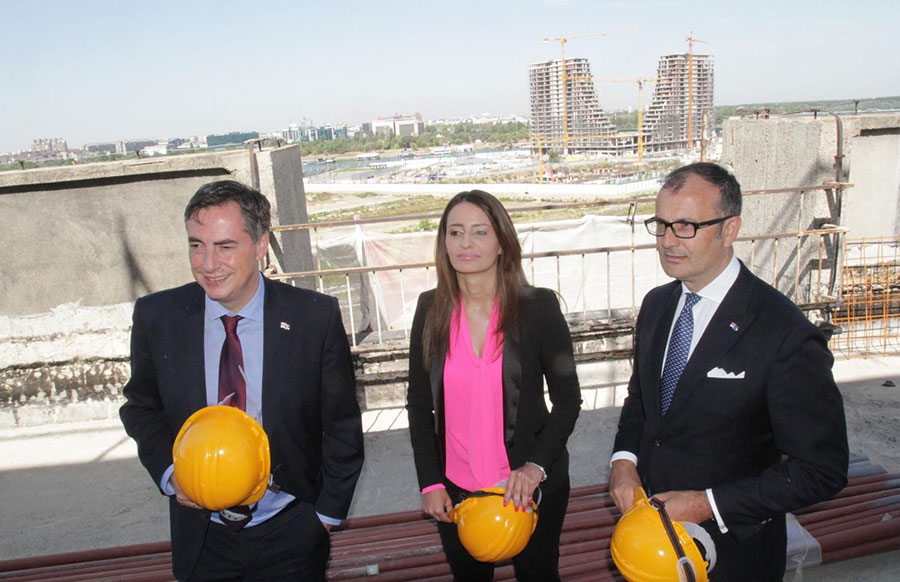
FoNet
RSE: May I ask you a few questions regarding Russian presence in Serbia. Do you believe that the so-called balance policy of Serbia is a success?
McAllister: First of, I would like to underline there’s a lot of common ground between EU and Serbian foreign policy. I would like to commend Serbia’s very constructive role in dealing with refugee crisis in 2015/2016 when it really showed enormous efforts to support the people who were walking through the Balkans. I would also like to commend Serbia’s contribution to international peace-keeping missions. So there is a lot of common ground. There are some fields of foreign policy where the EU and Serbia don’t have 100% identical position, such as Russia. But this is a part of the EU accession process where we align our foreign policy step by step. I respect the special relationship Serbia has with Russia. They have close contacts and I think these might even be helpful in dealing with our large eastern neighbour. And I also fully understand the Serbian political position that it is interested in joining the EU but is not interested in joining NATO. And we have six Member States that are not members of the NATO. Countries like Cyprus, Austria or Finland. And that’s OK. EU membership has nothing to do with NATO membership. Most EU countries are NATO members but this is not a necessary condition.
RSE: Only a quarter of young people in Serbia have a positive attitude towards the EU. This is the result of a survey done by an NGO youth organisation in Serbia. Whom do you hold responsible for such results? We are talking about young people, that’s pretty bad news.
McAllister: Well, of course, there are forces in the Western Balkans and here in Serbia, who are trying to influence people that it’s better not to be in the EU. Look, nobody is forcing you to join the European Union, it is an offer. I strongly believe that Serbia is a country that should join the EU once it’s ready. But it’s up to people and politics to decide if they actually want to go down this path or not. EU membership in the end is beneficial not only for the country and economy, its beneficial for society and people. We who live together in Europe with the strongest single market in the world, where 22 out of 28 Member States don’t have border control, where 19 out of 28 Member States have joined the currency. I strongly believe in the concept of the EU that you can share and pool national sovereignty because together we are stronger. But this is a concept which has to be explained to the people. And you saw in the referendum in the UK that things like this can even go wrong in a Member State which has been one for longer than 40 years. So I think it’s important for us, as European Union institutions, to reach out to Serbian people, to explain why it’s good for them to be on this pro-European path. But of course it’s also a task of the Serbian Government and political parties which are in favour of the EU membership to explain this to their people. My impression is, especially when I speak with young people in Belgrade, that there are many who know that economic and political future of Serbia is in our family of nations.
RSE: Sometimes I believe that messages from Berlin or Brussels are confusing to Belgrade. For example, Chancellor Angela Merkel has two days ago criticized previous Chancellor Gerhard Schroder, because of his decision to enter the Board of Directors of the Russian Rosneft. As you know, he is often a guest here in Belgrade and of certain Serbian officials. Do you believe that messages from European capitals can be confusing for Belgrade?
McAllister: When it comes to this concrete case, I respect Gerhard Schroder as a former minister and Chancellor. He is not a member of my party, but I still respect him for what he has done for our country. His move and new position in Moscow has been criticised not only by my party but also by his own party. And I would like to recall that Mr Schultz, the leader of the Social Democrats and Chancellor candidate has said that he himself would never have taken such a step. I think this is rather clear message from Germany and I don’t think that Schroder’s move is in any kind of way helpful for his own political party in these very crucial weeks before the German elections, to be held on 24 September.
RSE: All these issues – Russia, democracy in Serbia, Kosovo – everything is connected. I am sure that everybody asks you what would happen in the end of the negotiating process regarding chapter 35 – will Serbia recognise Kosovo or not. But how do you imagine the final solution? Is it possible to compare this to some examples from history, if you are talking about relations between Eastern and Western Germany during the Cold War era or is it better to compare it to current relations between Macedonia and Greece?
McAllister: Joining the EU means hard work. Other countries which have gone through this process know that it’s hard work. I think Serbia is on track towards EU membership. 35 chapters have to be opened and closed where all political fields are being carefully negotiated. We’ve now opened 10 chapters. I hope to see further chapters being opened by the end of 2017. Much has been done, but there’s still a lot to do.
In the end, all 35 chapters are equally important because you have to fulfil criteria when it comes to political, economic and judiciary criteria. The two main pillars of the negotiation framework are on the one hand the rule of law chapters 23 and 24, and on the other hand, further normalisation of relations with Kosovo. And of course the more progress we see in these two main pillars, the more likely it is that we could open further chapters on these very specific political fields. In the end, the negotiation framework of the EU with Serbia is very clear. What we in the end want, is the normalised relation between Belgrade and Pristina which in some kind of form will have to be legally binding for both sides and we want both sides to be able to exercise their responsibilities on one hand, but also their rights, on the other. This is hard work. And the EU once again facilitates this dialogue to bring the two sides together. And despite what has happened and a lot of tragic things have happened between Serbia and Kosovo, we want to step by step this relation to be normalised. This is in some kind of way uncharted territory for all sides involved, including the EU. But I think the direction we’re going is the right one. I would just like to see more momentum in the dialogue. So let’s hope that we soon have a stable government in Pristina and that we can continue our conversations in Brussels.

